There are thousands of DC comics, and its one of the longest running comic book companies in the U.S. With such a vast library, many people curious about getting into reading these books are intimidated with no idea how to start. DC stands for “Detective Comics”, a brand that launch in 1937. That means DC comics pre-date World War II and television! With so much history and a long continuity of famous superhero characters, it’s no wonder people feel lost about where to start. In this guide, we’ll help you find the entry point that will give you the best experience with these books and characters. We cover different story arc starting points, major crossover events that changed the shaped of the DC universe, the key characters you can follow, the most beloved artists and writers, and how you can get your hands on DC comics.
Jumping into the Newest DC Comics
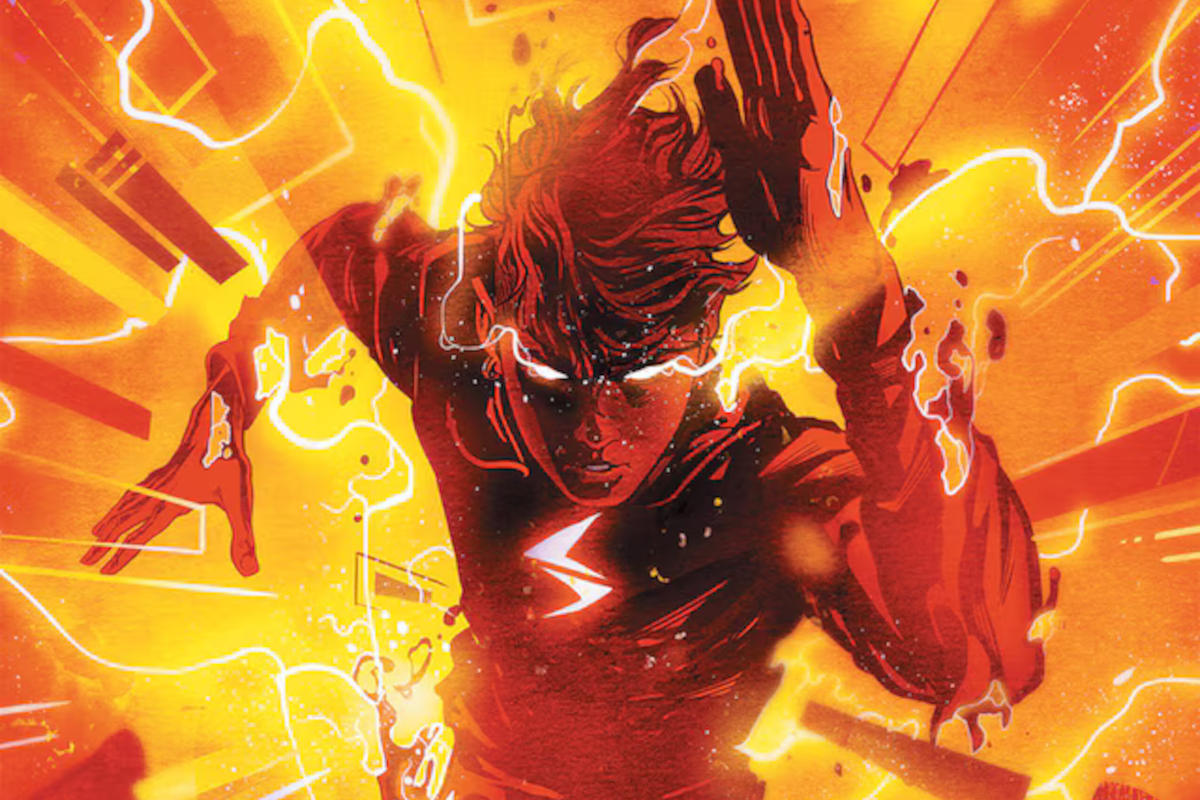
Absolute Flash #1, Image credit: DC Comics
DC might be rich with history, but you don’t have to start with comics circa 1938 and work your way forward to catch up. Comic book creators know that task would quickly become homework, so they’re constantly rebooting and re-inventing worlds and characters to form accessible entry points for new fans. In 2025, you have a few entry points to comic books from recent years that will catch you up with the monthly issues released now.
These are the story arcs that will catch up with current issues and not leave you in the dark as to who these characters are and what challenges they’re up against:
- 2021’s Infinite Frontier
- 2023’s Dawn of the DC Universe
- 2024’s Absolute DC Universe
Absolute DC Universe was a complete reboot that dropped old storylines. If you start here, you won’t be missing any continuity. But, if you want a deeper sense of where these stories have come from, you can start at Infinite Frontier and Dawn of the DC Universe for some remarkable stories before starting a new reboot.
Enjoying the Classics
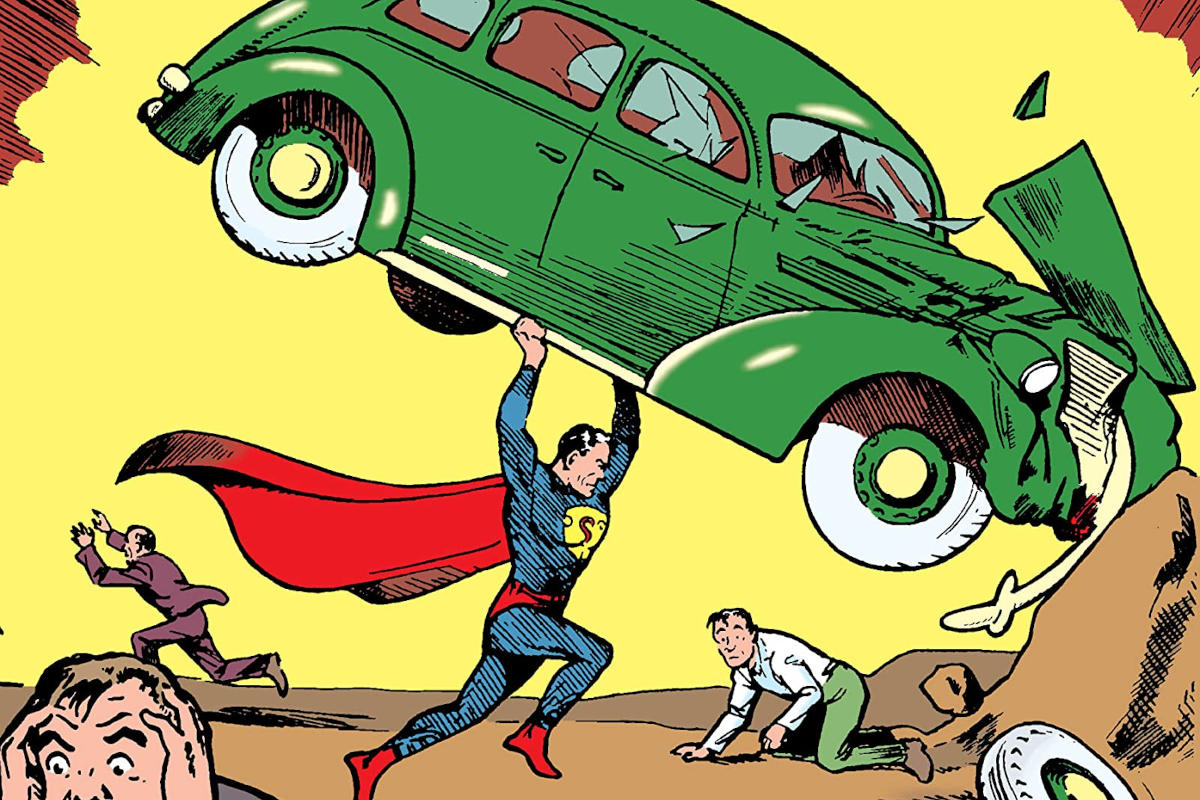
Action Comics #1, Image credit: DC Comics
Some fans love the style of classic comic books. They enjoy a vintage art style or they like past storylines with no retcons of classic characters and our understanding of them. There are certainly ways to get a taste of DC’s past without reading the entire massive catalog. Selections from a range of decades offer their own aesthetic and sensibilities.
Here are some suggestions:
- Whatever Happened to the Man of Tomorrow? by Alan Moore and Julius Schwartz: This is the final story from the Silver Age of Superman in 1986. The story follows Lois Lane as she investigates Superman’s final moments.
- The Longboy Hunters by Mike Grell: Green Arrow gets a reboot to re-vamp his popularity in this 1987 storyline as we watch him develop a new street-style of crime fighting in a gritty, violent rebrand.
- The Great Darkness Saga by Paul Levitz and Keith Giffen: A fan favorite villain, Darkseid is introduced and faces off with popular DC heroes in one of the biggest battles of comic book history.
- Kingdom Come by Mark Waid and Alex Ross: Featuring Ross’ stunning artwork, this story shows a retired Justice League forced back into a battle that ultimately splits them apart in one of DC’s most rich and dramatic stories.
- Batman: The Killing Joke by Alan Moore and Brian Bolland: Fans of Batman can’t miss this dark and twisted tale centering on the relationship between Batman and the Joker. This also serves as a major moment for Barbara Gordon, “Batgirl” whose entire future is changed as a consequence of this story.
- The Golden Age: This is generally considered the years between 1938 and 1956. Any collection of DC Golden Age comics will give you a taste for this era and offer introductions to famous characters like Superman, Wonder Woman, and Batman.
Reading the New 52
The New 52 was a reboot event that covered comics published between 2011 and 2016. It’s controversial among DC fans. Not every series was high-quality during this time. Nevertheless, it’s an extremely accessible starting point to the past 20 years of DC comics and features some stand out moments and series, like Scott Snyder’s Batman run and Grant Morrison’s Superman arc.
Start at Crisis on Infinite Earths
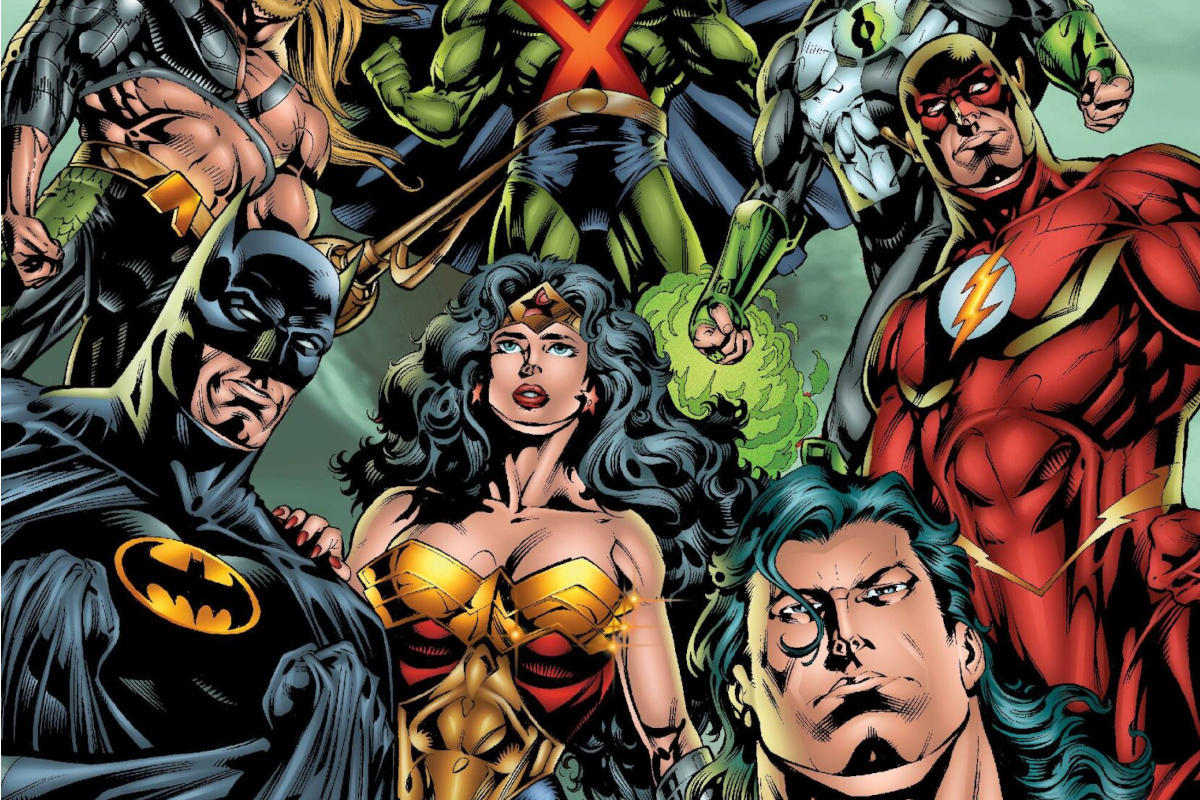
JLA (Volume 1), Image credit: DC Comics
In 1985, the DC Universe continuity had become tangled, confusing, and inaccessible to newcomers. The brand had never done a full reboot before. Enter a monumental event: Crisis on Infinite Earths. A cosmic being called the Monitor assembles the greatest superhero team across time and space to fight the “Anti-Monitor,” an eater of worlds and universes. This shake-up changed everything and reset DC timelines and continuity. Not only does it serve as a fresh start, but it’s a major touchstone for modern DC stories, which are often referred to as Pre- and Post-Crisis stories.
The post-Crisis era is generally thought of as 1987 to 2011. That’s a lot of material, but there are some stand out stories from that time. Here are some highly recommended stories you can find in trade paperback form:
- Batman: The Dark Knight Returns
- Batman: Year One
- Superman: Man of Steel
- Superman: For all Seasons
- Superman: Birthright
- Green Lantern: Secret Origin
- Wonder Woman: Gods and Mortals
- Wonder Woman: Hiketeia
- The Atlantis Chronicles and Aquaman: Time and Tide
- DC: The New Frontier
- Green Arrow: Year One
- JLA (Justice League of America)
Begin Anew with DC Universe: Rebirth
In 2016, DC did a pseudo reboot to follow up on the Flashpoint event and give some shared history to characters while also launching new storylines. Every single book in the DC Universe got a Rebirth tie-in issue so this was a massive event, connecting all the current superheroes to the classic Watchmen story. Fan reactions to Rebirth were mixed, but it can give you an entry point to DC with a big story touching on all major and minor characters.
Read the Biggest Events of the Past Decades
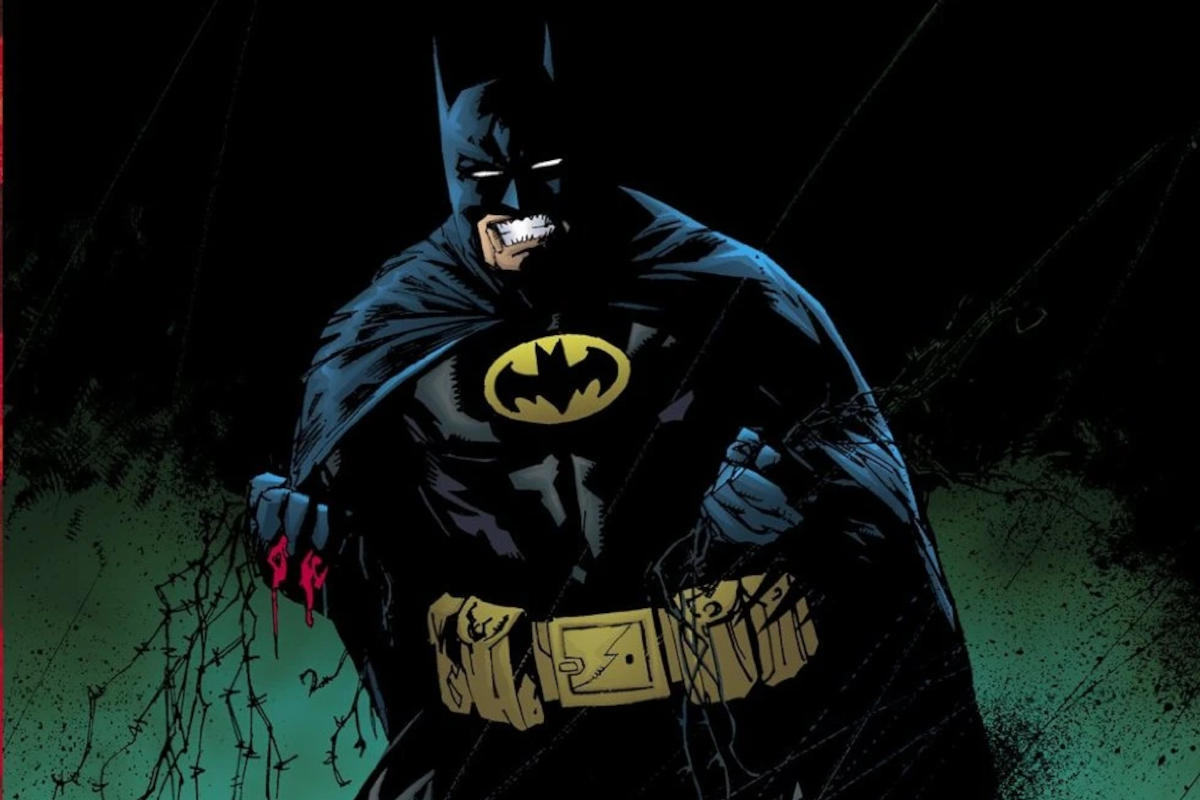
Batman: No Man’s Land (2011/2012 Edition) Vol 2, Image credit: DC Comics
If you want a taste of the progression of the past few decades of DC comics but you’re searching for a shorter reading list, a strong choice is to read just the major events of the past several years. Here are some recommended storylines starting in the 90s:
- Batman: No Man’s Land
- Superman: Birthright
- JLA: Earth 2
- JLA: Tower of Babel
- Green Arrow: Year One
- Green Arrow: Quiver
- Wonder Woman: The Hiketeia
- Batman: Hush
- All-Star Superman
- Gotham Central
- Identity Crisis
- Batman: Under the Red Hood
- Flash: Blood Will Run
- Secret Six
- DC: The New Frontier
- Superman: Red Son
- Infinite Crisis
- DC Universe: 52
- Green Lantern by Geoff Johns
- Batman by Grant Morrison
- Final Crisis
- Batman: The Black Mirror
- Batman Inc.
- The Flash: Rebirth
- Flashpoint
Follow Your Favorite Characters
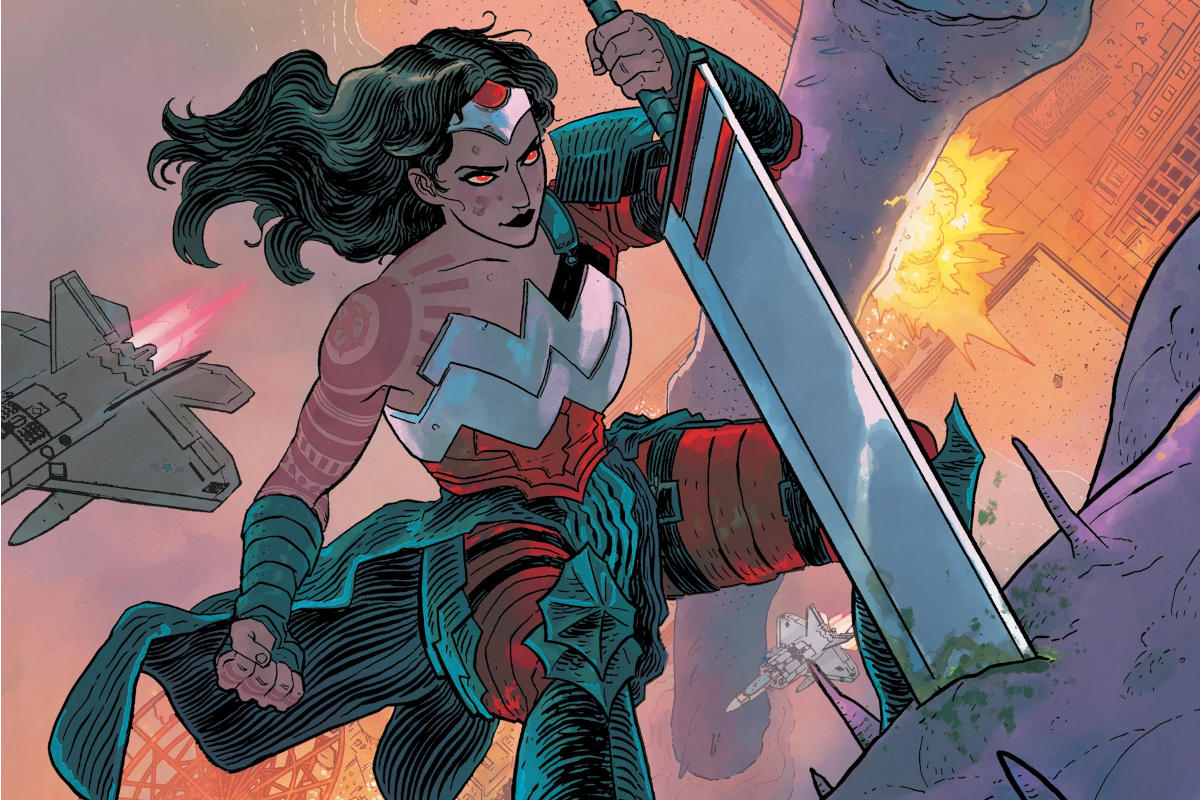
Wonder Woman in Absolute Wonder Woman #4, Image credit: DC Comics
Many people get into comics because they saw a movie or played a video game starring a particular superhero or villain that they really loved. If you’d like to read mostly about your preferred characters, that’s a totally valid choice. Some of the most popular characters to delve into are:
- Batman
- Aquaman
- Doom Patrol
- The Flash
- Green Lantern
- Shazam (Captain Marvel)
- Wonder Woman
- Superman
- Swamp Thing
- Justice League
- Grayson
- Suicide Squad
You’ll likely need some reading guides to help you along your journey if you choose to read specific characters only. Personally, I like Comic Book Herald’s guides but there are many to choose from.
Choose Your Favorite Writers and Artists
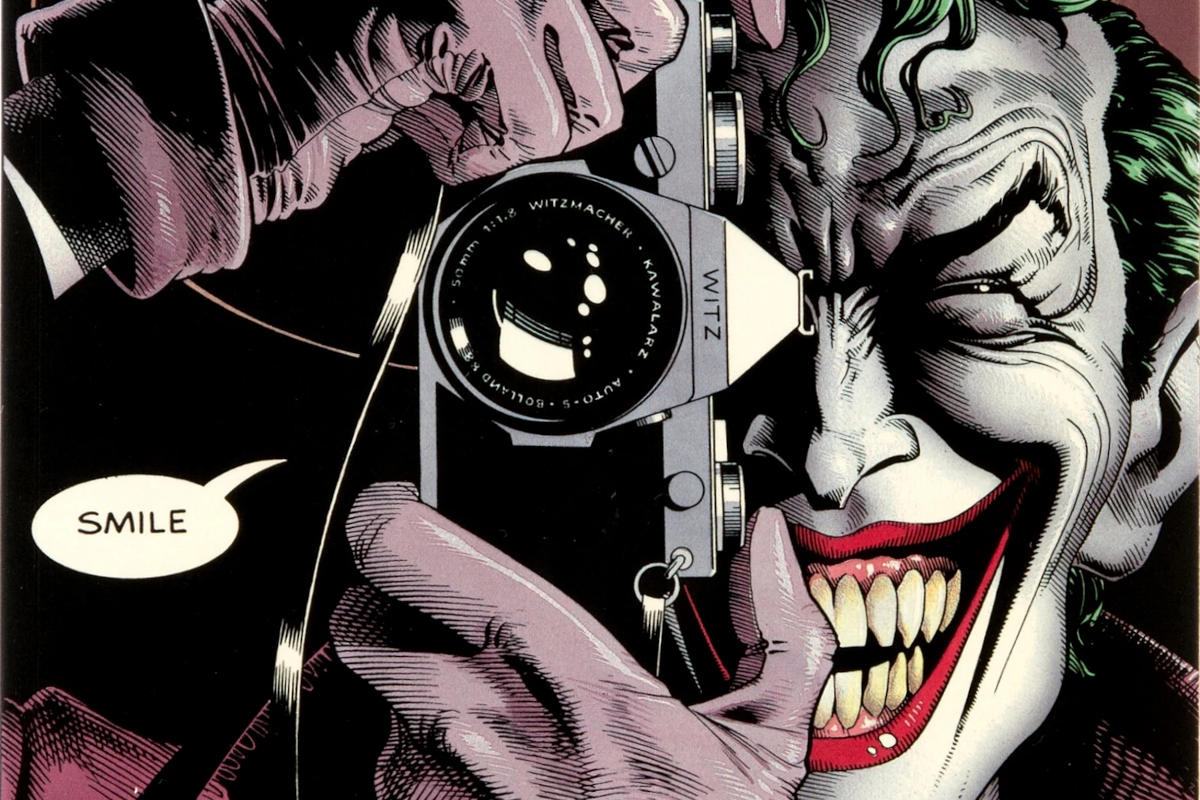
Batman: The Killing Joke, Written by Alan Moore and illustrated by Brian Bolland, Image credit: DC Comics
Comic book fans have passionate opinions about their favorite creators. If you find you’re more drawn to a particular art or storytelling style, you can follow the careers of your favorite creators and read their books specifically. Some of the most popular artists and writers to explore in the DC Universe are:
- Alan Moore
- Alex Ross
- Scott Snyder
- Grant Morrison
- James Tynion IV
- Frank Miller
- Mark Waid
- Tom King
- Gail Simone
- Jack Kirby
- Greg Capullo
- Bruno Redondo
- Phil Jiminez
- Jim Lee
- George Perez
Where to Source DC Comics
By now, you should have some ideas of where you want to start your DC comics reading journey. The only remaining question is how and where to read the comics. You can buy and borrow both print and digital comics. Your local library should have a selection of books to borrow, and the Hoopla digital loaning system has an impressive library of comics to borrow. All you need to access that is a library card.
If you don’t want to be held to due dates, you can subscribe to DC Universe Infinite, the company’s official app that will let you read whatever you want digitally for a monthly fee. For those who don’t want digital copies, you’ll need to decide if you’re going to collect monthly issues or trade paperbacks, which are omnibuses collecting several issues into one book. You’ll be able to find these at most major bookstores and online retailers, but I highly recommend visiting your nearest comic shop! Staff at these shops are passionate fans and can give you new recommendations, connect you with other fans, and they might even give their frequent customers a discount!
Featured image photo credit: DC Comics
Check out one of our latest Geek Viz visualizations: The Top 50 Highest-Grossing Superhero Movies, Ranked by Rotten Tomatoes Score

Leave a Reply